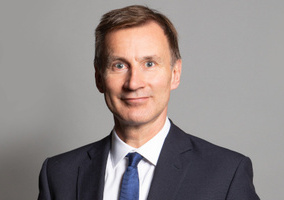In line with the cover theme of this month’s edition – campaigning and political activity – it seems pertinent to highlight a new report from the Sheila McKechnie Foundation (SMK) on the role of charity leaders engaging in public debate.
The report, called Speak Up, We Need You: Why Charity CEOs Need to be Part of the National Conversation, was produced by SMK for a working party of charity chief executives called the Charity Reform Group (CRG). It was based on a series of conversations they had with leaders from the public sector, politics, media, business, and wider civil society last year.
One of the key findings was that charities are generally under-represented in public discourse on important national issues, and that this is a missed opportunity. Research carried out for the group revealed that just 2% of guests on current affairs TV programmes such as Question Time, Peston and the Andrew Marr Show are from civil society, compared with 10% from academia and journalism and 4% from business.
This topic is also the subject of the opening session at this year’s Trustee Exchange Conference on 26 April, where SMK chief executive Sue Tibballs will chair a panel discussion examining why charity voices are so often missing from public discourse on key issues.
One of the unfortunate conclusions that CRG members arrived at in their investigations was that trustee boards can be reluctant to support their chief executives to make their voices heard on topics that might be perceived to be contentious. Trustees are too often worried about damaging the charity’s reputation, or attracting criticism from the regulator, and ultimately risking their funding.
It is true that the stewardship remit of trusteeship can cause board members to be inherently risk-averse; to put it crudely, nobody wants their charity to go belly-up on their watch. But being too cautious can have serious unintended consequences – it can be a real drag on the ability of an individual charity, and the sector as a whole, to maximise its impact. The role of charity cannot only be to apply sticking plasters to problems – it must go further than that, and work to address the cause of those problems. As the adage goes, we didn’t abolish slavery by giving soup to slaves.
Alex Farrow, director of influencing and engagement at NCVO, gave the perfect summation in response to the churlish parliamentary debate called by Tory MP Craig Mackinlay earlier this month to complain about taxpayer-funded charities “straying into politics”. Farrow said: “Alongside other funding sources, many charities receive government funding to deliver vital services. This money buys experience, expertise, and helps build stronger communities. It doesn’t buy silence. Politicians and decision-makers should welcome charities speaking honestly about the challenges and opportunities facing society.”
The CRG’s research found that leaders from other sectors are keen to hear from charity chiefs on the big issues of the day. While the short-termism of politics acts as a brake on connecting up disparate policy initiatives, civil society is uniquely placed to “join the dots on different issues in public debate”, the report said. But charity CEOs will only feel confident to make their voices heard if they know for sure that their trustee board will back them.
Related Articles












